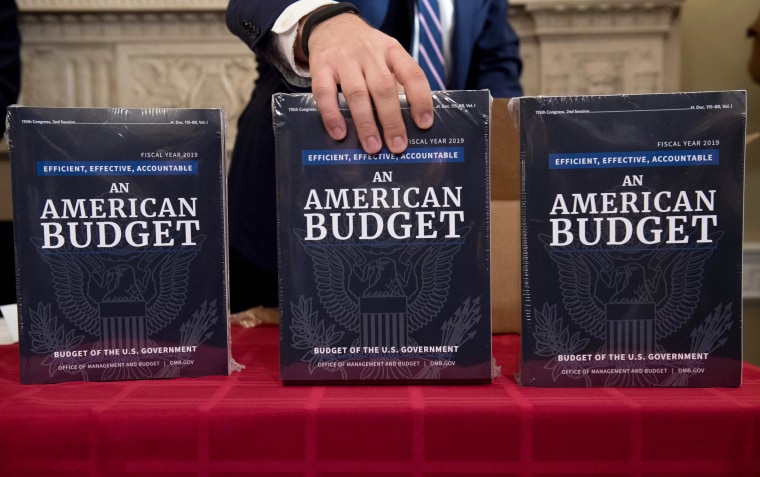"I'm not going to cut Social Security like every other Republican and I'm not going to cut Medicare or Medicaid," Donald Trump declared in 2015. "Every other Republican's going to cut, and even if they wouldn't, they don't know what to do because they don't know where the money is. I do. I do."
As regular readers may recall, this became a staple of his entire national candidacy: no matter what, Americans could count on him to champion these social-insurance programs. Ahead of the 2016 race, Trump wanted everyone to know that entitlement cuts, as far as he was concerned, are off the table.
A few weeks ago, however, the Republican started hedging. Over the weekend, referring to the new White House budget, Trump's promise not to cut Social Security, Medicare, or Medicaid quietly lost one of its three pillars. He tweeted, "We will not be touching your Social Security or Medicare in Fiscal 2021 Budget."
Part of the problem is that the president quietly scrapped a prong from his three-pronged promise. The other part of the problem is that Trump's newest boast isn't true, either. As the Washington Post reported:
Medicaid, the safety-net insurance for low-income Americans, would receive nearly $920 billion less than otherwise anticipated by 2030 as federal health officials encourage states to create work requirements and tighten eligibility checks. And a "health reform vision allowance" would lower spending on the Affordable Care Act by $844 billion over the decade.For Medicare, the federal insurance for older and disabled Americans, the plan would curb spending by $480 billion over the decade, primarily through proposed cuts in payments to doctors and hospitals.
According to Republican rhetoric from the last decade, removing nearly a half-trillion dollars from Medicare through cuts to providers necessarily counts as "cutting" Medicare.
As for Social Security, benefits to seniors are untouched in the new White House budget plan, but as the Center on Budget and Policy Priorities noted in an analysis, Trump's blueprint does cut eligibility for Social Security disability benefits.
For those who rely on these social-insurance programs, it's important to emphasize that there's no real cause for alarm. The president's budget is merely a proposal, which Congress -- most notably the Democratic-led House -- is bound to ignore. The cuts Trump has asked for will not actually happen, at least not anytime soon.
But the budget is an opportunity for the White House to present its vision to the nation, in effect, signaling to Americans the kind of changes the president would like to see unfold if he had his way.
As a political matter, common sense suggests Trump should've proposed an uncontroversial budget because, rumor has it, this is an election year, and the president is deeply concerned about his prospects for a second term. And yet, the Republican and his team threw caution to the wind and unveiled a rather radical, far-right budget blueprint, inviting attacks.
Don't be surprised if Democrats exploit this opportunity for the next several months.

